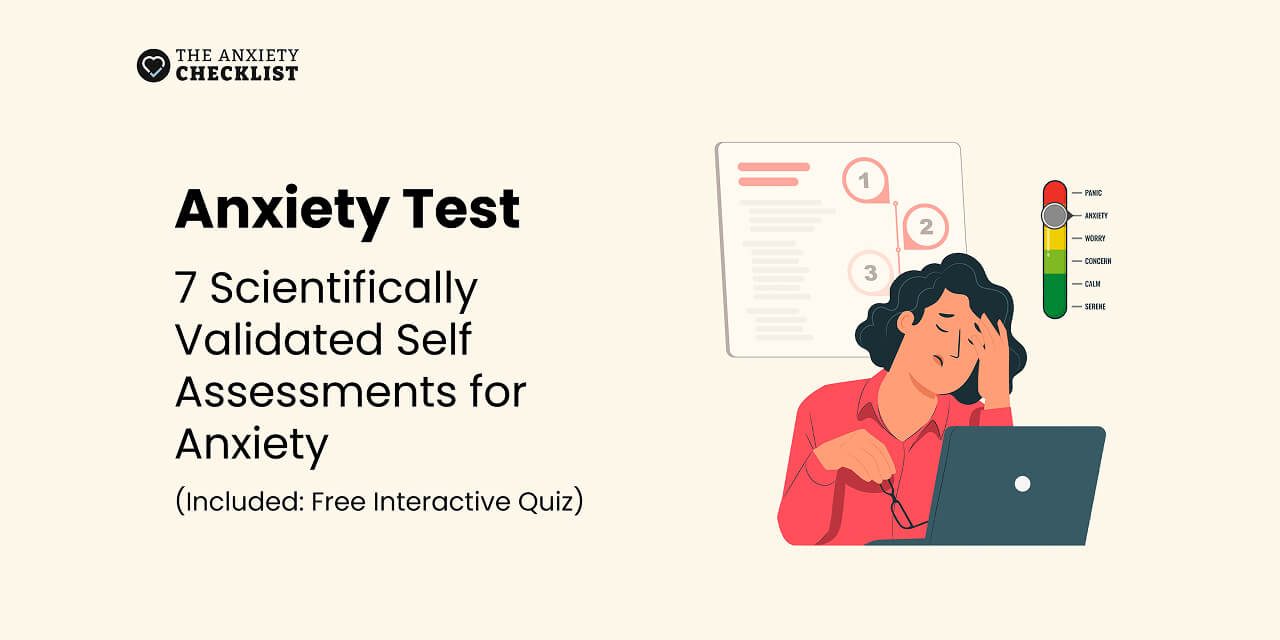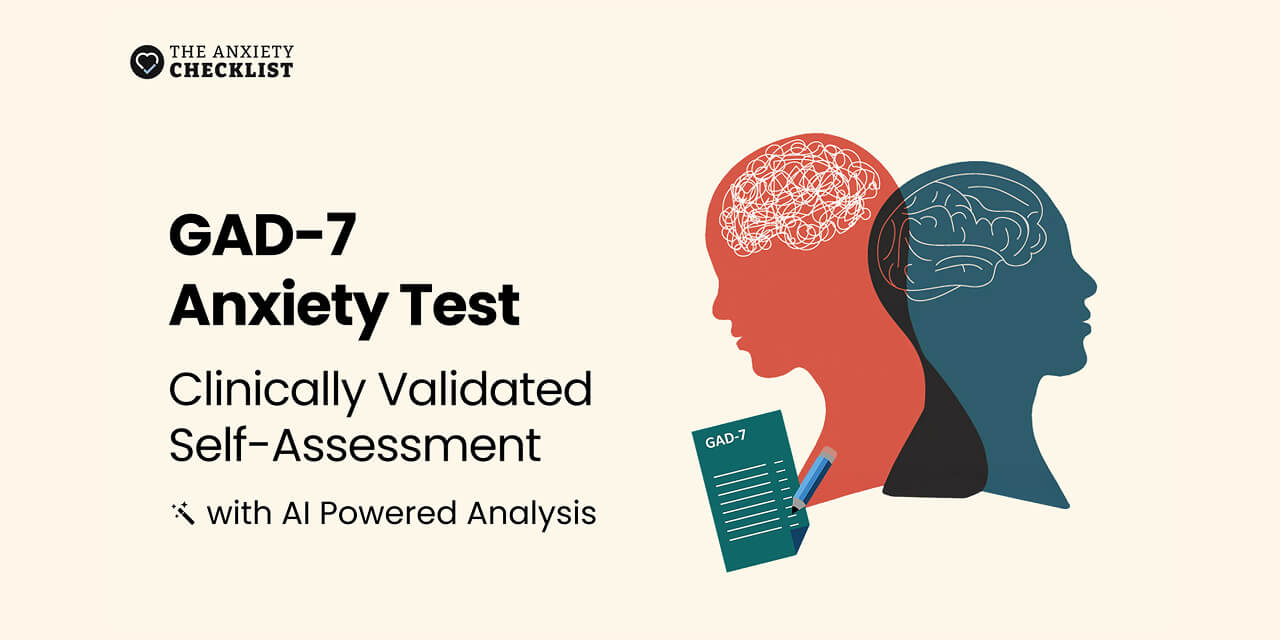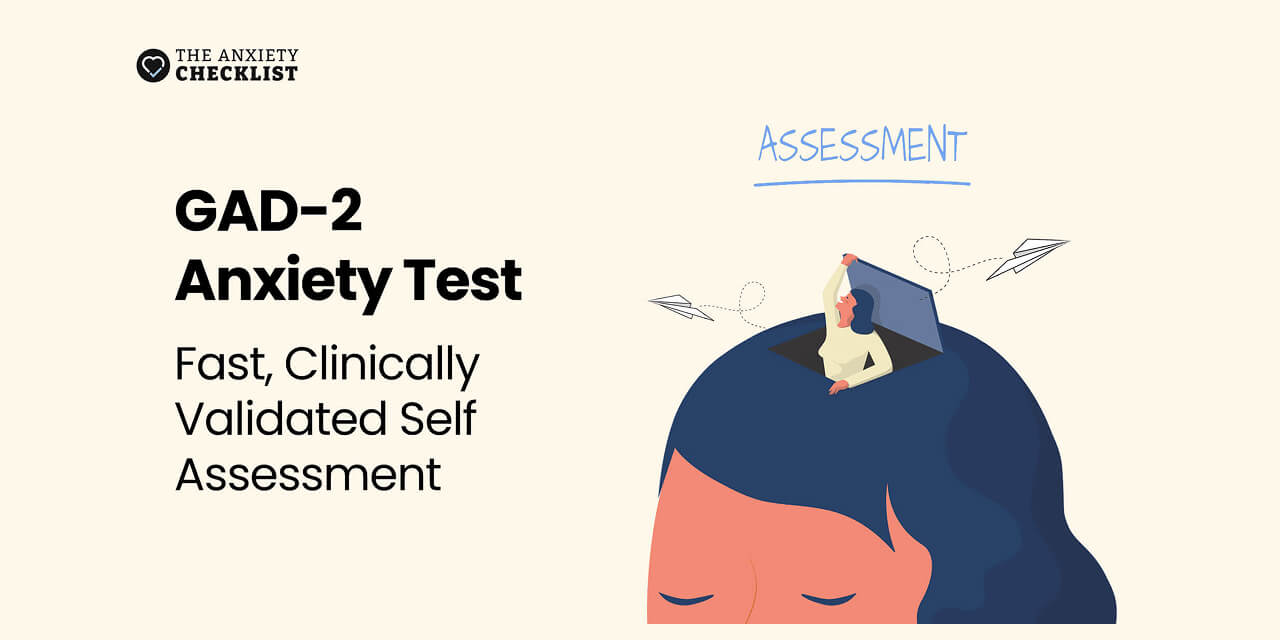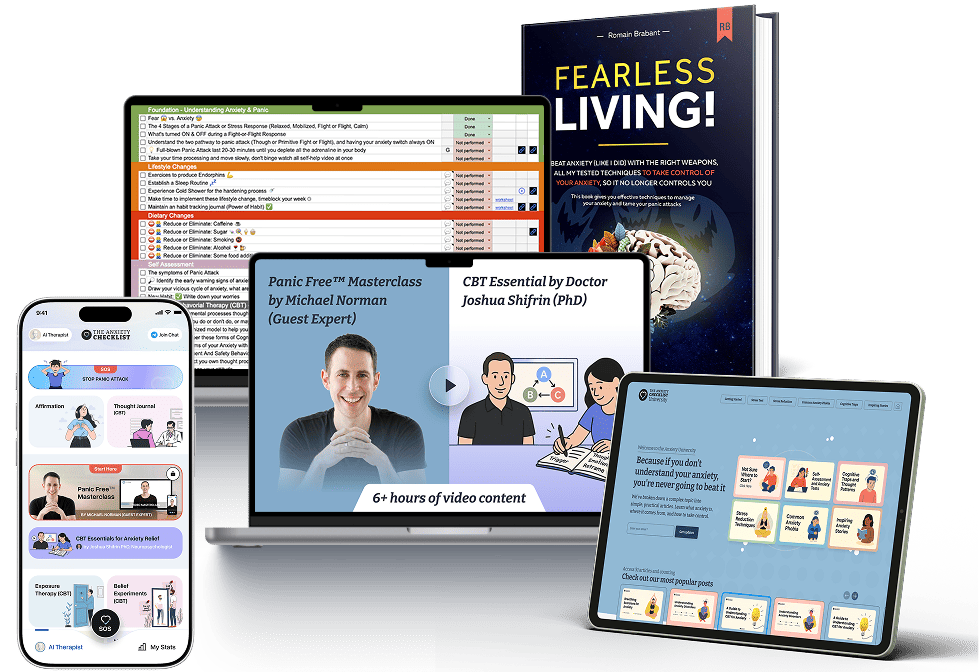Get an instant assessment of your anxiety level with the GAD-7 test.
This scientifically validated Anxiety Test can help you assess your anxiety levels and guide you toward the right support. Answer a few questions and get instant results!
- Time Required: 2-3 minutes
- Scientifically Validated & Used by Doctors
- Instant score calculation
- AI-driven analysis for deeper insights
- Personalized recommendations from our Chatbot
After completing the test, let our AI Interpreter analyze your results and provide you with tailored advice! 
Start GAD-7 Test + AI Analysis
GAD-7 Quick Facts:
 What is it? A clinically validated anxiety screening tool used worldwide.
What is it? A clinically validated anxiety screening tool used worldwide. Who is it for? Anyone experiencing frequent anxiety symptoms.
Who is it for? Anyone experiencing frequent anxiety symptoms. How long does it take? 2-3 minutes.
How long does it take? 2-3 minutes. What happens after? You’ll receive an instant score interpretation.
What happens after? You’ll receive an instant score interpretation.
- If your score is high, we recommend consulting a mental health professional.
GAD-7 Anxiety Test
Question 1: Feeling nervous, anxious, or on edge
Question 2: Not being able to stop or control worrying
Question 3: Worrying too much about different things
Question 4: Trouble relaxing
Question 5: Being so restless that it is hard to sit still
Question 6: Becoming easily annoyed or irritable
Question 7: Feeling afraid as if something awful might happen
Who Should Take the GAD-7 Anxiety Test?
- Do you feel anxious or restless frequently?
- Do you struggle with overthinking and worry?
- Is anxiety interfering with your daily life?
- Do you have trouble relaxing or sleeping due to stress?
If you answered YES to any of these, the GAD-7 test can help assess your anxiety level. 
What is the GAD-7 Test? 
Overview: Who Created the GAD-7? 
The Generalized Anxiety Disorder-7 (GAD-7) was developed by Dr. Robert L. Spitzer, Dr. Janet B.W. Williams, and Dr. Kurt Kroenke in 2006 as a quick and reliable self-assessment for anxiety disorders.Originally part of the Patient Health Questionnaire (PHQ) series,GAD-7 has since become one of the most widely used clinical toolsfor measuring generalized anxiety disorder (GAD) in medical settings.
- Published In: Archives of Internal Medicine, 166(10), 1092–1097
- Clinically Recognized By: WHO, APA, CDC
GAD-7 Scale: How is It Scored? 
Example Interpretation:
"If you scored 12 on the GAD-7, your anxiety level is moderate. This suggests that your anxiety might be affecting daily life. It’s recommended to consult a healthcare professional for further evaluation."
Example Scenario:
Sarah is a 29-year-old professional. She finds herself overthinking at night, struggling with work deadlines, and feeling exhausted from constant worry. She took the GAD-7 test and scored 12. Based on her score, she realized her anxiety was impacting her productivity and relationships. She decided to explore therapy and mindfulness techniques, which helped her regain control.
How to Read Your GAD-7 Results
- What Your Score Means in Daily Life
Tip: Taking the GAD-7 test regularly can help track your anxiety levels over time! ![]()
What To Do After the Test?
If your score is...
 0-4 (Minimal Anxiety): No clinical anxiety. Keep practicing stress management.
0-4 (Minimal Anxiety): No clinical anxiety. Keep practicing stress management.- 5-9 (Mild Anxiety): Try relaxation techniques like deep breathing, exercise, and journaling.
- 10-14 (Moderate Anxiety): Consider talking to a therapist or using self-help techniques like CBT-based apps.
- 15+ (Severe Anxiety): It’s strongly advised to consult a licensed mental health professional for further guidance.
 Next Steps:
Next Steps:
How Often Should You Take the GAD-7 Test?
- For general screening: Take it once every few months.
- If you’re managing anxiety: Take it every 2–4 weeks to track progress.
- During therapy or treatment: Follow your doctor’s recommendation.
![]() Tip: Save your results and compare them over time!
Tip: Save your results and compare them over time!
Clinical Use: When Do Doctors Use the GAD-7 Test?
Doctors and mental health professionals use the GAD-7 test for:
 Routine Anxiety Screening in primary care and mental health settings.
Routine Anxiety Screening in primary care and mental health settings. Tracking Treatment Progress over time.
Tracking Treatment Progress over time. Differentiating Anxiety Disorders from other mental health conditions.
Differentiating Anxiety Disorders from other mental health conditions. Helping Diagnose Generalized Anxiety Disorder (GAD).
Helping Diagnose Generalized Anxiety Disorder (GAD).
 Doctor’s Perspective:
Doctor’s Perspective:"The GAD-7 is a fast, evidence-based tool for detecting anxiety symptoms in patients. It helps us determine whether further psychiatric evaluation or therapy is needed." – Dr. Emily Carter, Clinical Psychologist
Purpose of the GAD-7 Test 
Development of the GAD-7 Test 
Originally developed for primary care patients as part of the Patient Health Questionnaire (PHQ) series, this test was created by Dr. Spitzer, Dr. Williams, and Dr. Kroenke in 2006.
Reliability: Is the GAD-7 Test Accurate? 
- High internal consistency (Cronbach’s alpha = 0.92)
- Strong correlation with professional anxiety diagnoses
- Used in over 200 clinical studies worldwide
- Recommended by: WHO, APA, and CDC
Scientific References & Studies 
 Original Study:
Original Study:
 Additional Research:
Additional Research:
 Final Thoughts: Why Use the GAD-7?
Final Thoughts: Why Use the GAD-7?
- Backed by research & trusted by professionals.
- Quick, reliable, and scientifically validated.
- Helps identify anxiety symptoms early before they become overwhelming.
Take the first step toward managing anxiety today! ![]()
Previous Article





